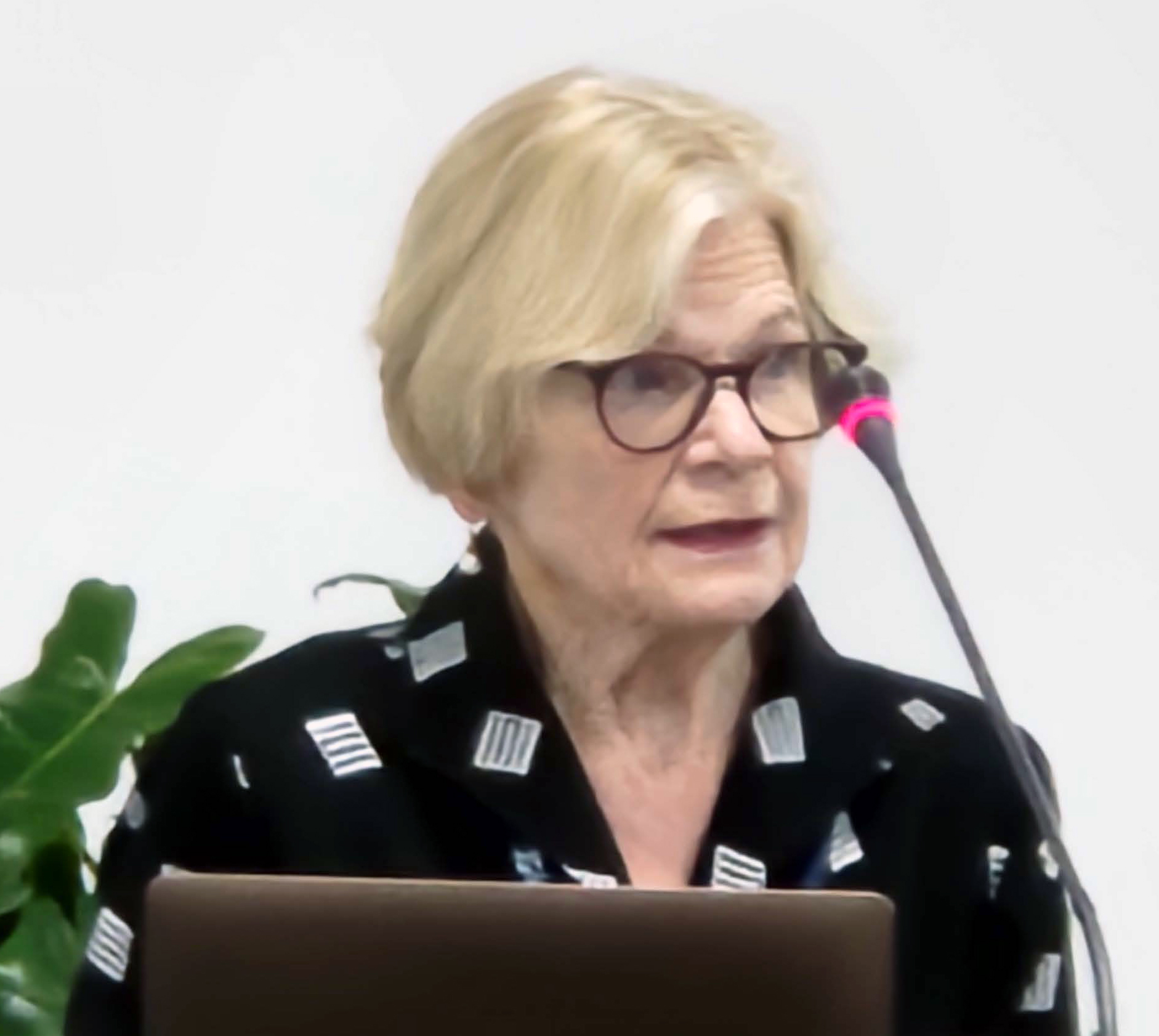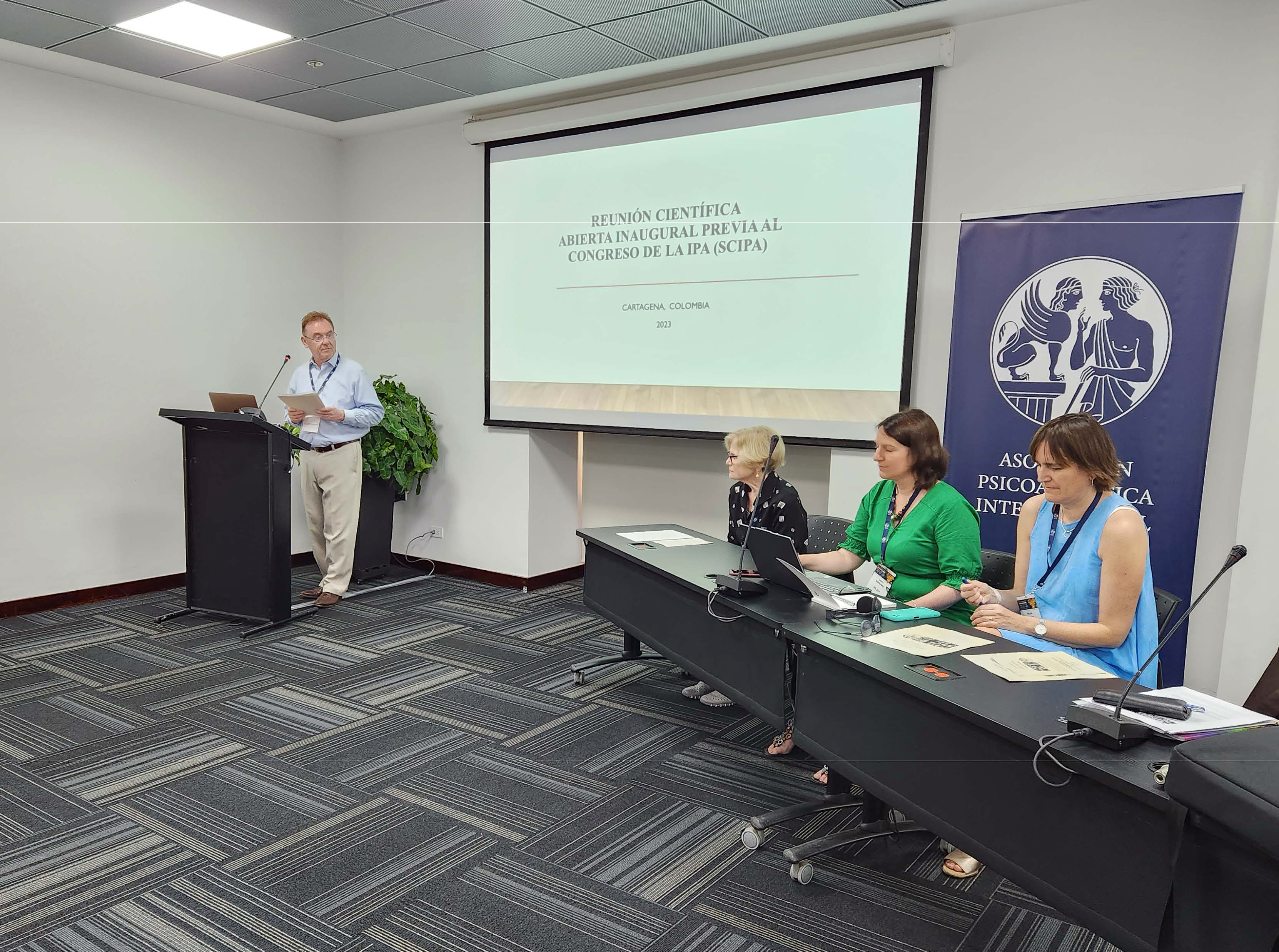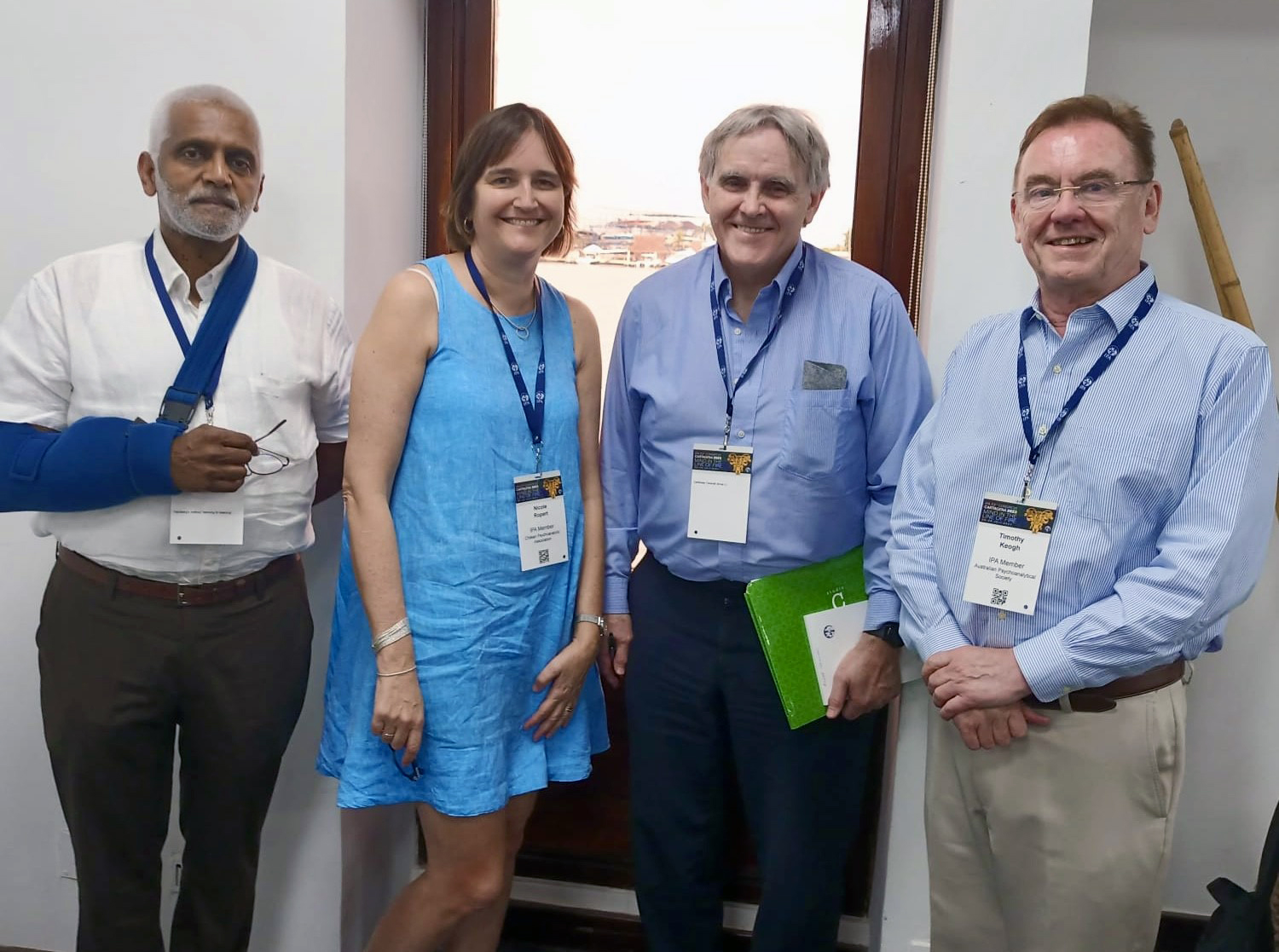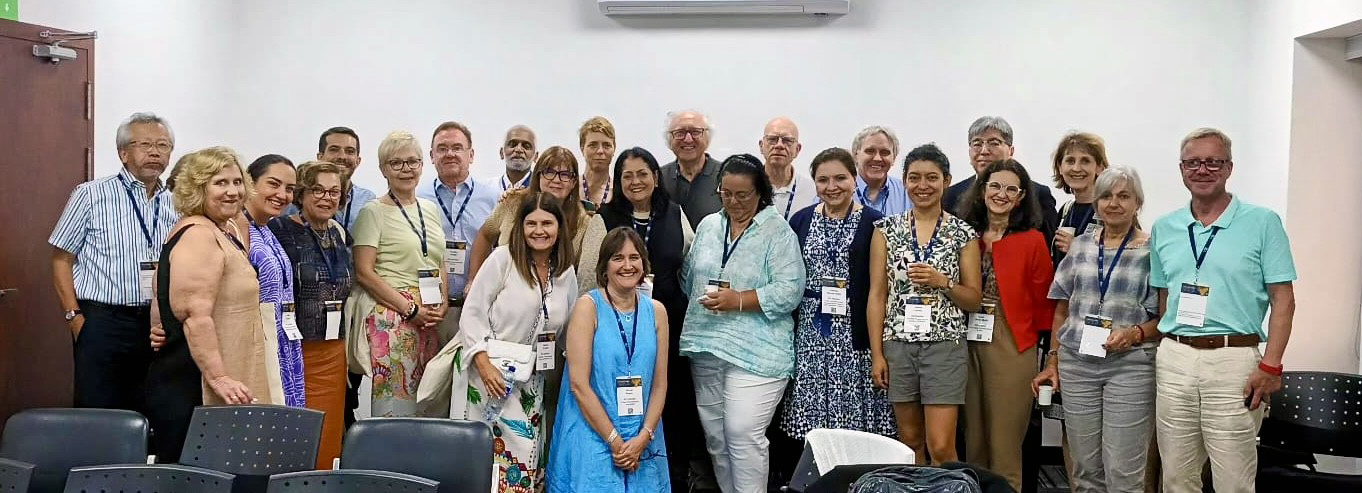Welcome to the Global Psychoanalytic Scientific Hub
Webpage moderator: Dr Timothy Keogh

About this webpage
-
The Global Psychoanalytic Scientific Hub (formerly Scientific Life Webpage) was established as a result of recommendations that arose from a Pre-Congress workshop held on Wednesday, 22 July 2015 in Boston entitled “The Scientific Life of Component Societies: Is a Common Framework Possible?”
- This workshop led to the establishment of ongoing Scientific Chairs meetings at IPA Congresses in Buenos Aires (2017) and London (2019). The meetings forward proposals to the IPA Executive.
- The webpage is devoted to furthering a discussion of issues identified by participants of these meetings to promote cross-fertilisation of ideas about the scientific activities amongst societies and regions.
Our archive of reports and recommendations can be found in the links below:
Draft Report on the Inaugural SCIPA Open Meeting
Pre-Congress
53rd IPA Congress
Cartagena Colombia July 2023
The Chair, Timothy Keogh, welcomed all participants, including those online, to the inaugural open meeting of the newly established IPA Scientific Committee (SCIPA). He then immediately noted how fortunate the meeting was to receive a welcome from our esteemed IPA President, Dr Harriet Wolfe. In welcoming Dr Wolfe, he acknowledged how supportive she has been of the establishment of our committee, but noted that her support had not been unqualified, as she has rigorously examined and provided helpful critiques of the rationale for the Committee.
 Dr Wolfe said it was her great pleasure to welcome everyone to the inaugural open meeting and in particular to welcome the newly appointed members of the Committee: Andre Gagnon representing North America, Nicole Ropert representing South America, Kannan Navaratnem representing Europe, Karyn Todes representing the Asia-Pacific societies and New Groups, and the Chair, Timothy Keogh.
Dr Wolfe said it was her great pleasure to welcome everyone to the inaugural open meeting and in particular to welcome the newly appointed members of the Committee: Andre Gagnon representing North America, Nicole Ropert representing South America, Kannan Navaratnem representing Europe, Karyn Todes representing the Asia-Pacific societies and New Groups, and the Chair, Timothy Keogh.
She noted that past IPA Presidents have addressed meetings of Scientific Chairs and noted their significance to the IPA. These past meetings organised by the now Chair, as part of what was called the Scientific Life Project and the grass roots support that came from them, paved the way for the establishment of this Committee, now a standing Committee of the IPA.
She highlighted that the work of this new Committee will involve coordinating the activities and maximising the scientific resources of the IPA through effective communication and coordination. Moreover, she said that it will thus also strengthen the scientific identity of the IPA which is important to the promulgation of psychoanalysis globally. She further noted that given that scientific activities include in-reach and out-reach activities, this Committee will also have an important role in terms of its potential impact on communities and its influence on our interdisciplinary colleagues.
In concluding, Dr Wolfe said that she looked forward to receiving a summary of the outcomes of this meeting and will watch with great interest the future work of this Committee.
Following the President’s introduction to the meeting the Chair then briefly sketched the antecedents of our committee, noting that he had originally proposed to the then IPA President, Dr Stefano Bolognini the importance of a space for Scientific Chairs to express their views. He had suggested to Dr Bolognini that this was not only an important means of shaping a global scientific identity for the IPA, but also as a way of conduiting to the IPA Executive ideas from the membership about scientific objectives, including congress themes. He also spoke about the support from Professor Marianne Leuzinger-Bohleber, who was an important inspirational speaker at our first meeting in Boston.
He mentioned that that meeting as a group provided was a valuable means of sharing ideas and resources. A further step in this direction step was the development of the electronic compendium of activities .
 The Chair recalled that at this first meeting the group also established a working consensus definition of scientific activities. In later meetings in Buenos Aires and London, the group also established a framework for scientific activities. It became clear, as had been suggested along the way, that there was, however, a need for an organising committee to drive our ambitions. We were reminded that Freud’s scientific meetings had led to the establishment of the IPA, but that strangely since then there had not been a scientific committee to articulate scientific priorities. Participants at all meetings had noted that without such a committee it would be hard to develop an esprit de corps and promote the IPA in any coherent way to our interdisciplinary colleagues.
The Chair recalled that at this first meeting the group also established a working consensus definition of scientific activities. In later meetings in Buenos Aires and London, the group also established a framework for scientific activities. It became clear, as had been suggested along the way, that there was, however, a need for an organising committee to drive our ambitions. We were reminded that Freud’s scientific meetings had led to the establishment of the IPA, but that strangely since then there had not been a scientific committee to articulate scientific priorities. Participants at all meetings had noted that without such a committee it would be hard to develop an esprit de corps and promote the IPA in any coherent way to our interdisciplinary colleagues.
Finally, Dr Keogh said that with all of this enterprise and grass roots support we have now achieved this important milestone, representation through an IPA Committee. He noted that the history to which he referred is summarised on the Scientific Life Project webpage of the IPA website.
Following this the Chair asked the other Committee members to introduce themselves and to explain the structure of the agenda for our work together this morning.
Kannan Navaratnem introduced himself as a member of British Society in London for 18 years serving on the Scientific Committee for 6 years. Kannan has teaching posts at the Tavistock Clinic and at the Psychoanalysis Unit within University College, London.
Nicole Ropert introduced herself as a member of the Chilean Psychoanalytical Association who currently chairs their Scientific Committee. She noted her interest in strengthening the bonds between the various regional and international associations.
 André Gagnon introduced himself as a psychiatrist and psychoanalyst who was former Associate Professor in the Department of Psychiatry, University of Ottawa. He also served for ten years as the Director of Continuing Medical Education for the Section of Psychiatry (Royal College of Surgeons and Physicians, Canada) and subsequently he became Director of the Scientific Committee for the Canadian Psychoanalytic Society.
André Gagnon introduced himself as a psychiatrist and psychoanalyst who was former Associate Professor in the Department of Psychiatry, University of Ottawa. He also served for ten years as the Director of Continuing Medical Education for the Section of Psychiatry (Royal College of Surgeons and Physicians, Canada) and subsequently he became Director of the Scientific Committee for the Canadian Psychoanalytic Society.
Karyn Todes introduced herself as a Psychoanalyst / Clinical Psychologist who trained with the Australian Psychoanalytic Society. She noted that she has been her Society’s Scientific Committee Chair and has a particular interest in facilitating s scientific dialogue within the psychoanalytic community.
The Chair thanked all of the committee members.
He next outlined the agenda for the rest of the meeting, noting that the SCIPA Committee have derived a draft strategy through which the Committee could begin to implement its mandate. Moreover, he said that it was important that the Committee has a clear and agreed upon strategic direction in its initial years of operation. This would result in clarity, not only about the responsibility of the Committee as a whole, but for the Co-Chairs for the regions.
He then pointed to the proposed the Strategic Plan for 2023-2024 and 2024-2025 which would be to:
1. Refine established agreements concerning mission and value statements
2. Promulgate a shared vision statement within and among the regions of the IPA
3. Establish an effective means of regular communication with all scientific chairs
4. Facilitate within-region cooperation
5. Maximise inter-regional activities that promote the scientific mandate of the Committee
6. Plan Pre-Congress Scientific Chairs meetings to link with the strategic plan of the Scientific Committee.
He suggested that to consider the strategies the large group split into small (language-based) groups to consider this strategy and to gain feedback and further suggestions before we finalise it.
At the start of each small group discussion a committee member explained the proposed strategy. Following this, group members were asked to give their broad response to the strategy and then specifically ask the group to:
1. Identify any barriers that they can see to implementing the strategy.
2. Identify anything that they feel could facilitate its implementation.
3. Articulate any other specific recommendations.
Important issues highlighted in the small groups
- That there were similarities (but also distinct differences) in the aims and objectives of SCIPA and the Research Committee.
- That there is a resistance to discussing research and scientific matters in societies and amongst candidates. This is linked to an anxiety that psychoanalytical ideas could become diluted if we open up too much to scientific information from other disciplines.
- That approaches to scientific issues can become fragmented as a result of influences such as cultural differences.
- That being open to scientific findings has been limited by a legacy of arrogance about other disciplines.
- That there is value of having closer communication (and meetings) with scientific chair colleagues to reduce fragmentation and splitting.
- There is a need to examine the best way to communicate scientific issues within societies and to the outside world.
- That seminars offered to the public, especially interdisciplinary seminars, can have a mutually enriching effect and that such seminars could address the lack of understanding of what contemporary psychoanalysis has to offer.
- The value of being able to use the media effectively, especially in bringing a psychoanalytic perspective to social and political events.
- The question of what is scientific and how this can be defined.
- How to integrate scientific findings from psychoanalysis and other disciplines with psychoanalytic theory and practice. For example, how to encourage candidates to be more open to scientific findings, especially in the area of cognitive neuroscience.
- The possible value of linking training with formal academic qualifications such as a PhD.
- The importance of exploring ways in which we could use modern methods of communication to express our ideas to our colleagues in other disciplines.
- The issue of which in-reach activities are most helpful in promoting good clinical work, highlighting the need for the sharing of clinical work.
- That candidates want to share clinical work and also hear more about clinical issues.
- The importance of how to address the problem of confidentiality when sharing clinical material more broadly.
- The importance of peer group consultation, our own analyses, seminars, supervisions, in promoting good clinical work.
- The importance of being able to discuss controversies and engage in debates about the contemporary clinical issues being faced. For example, one society had a gender evening where an analyst from another society was interviewed.
- The need for interdisciplinary dialogue between ourselves, philosophers, physicians, sociologists and anthropologists.
- That more sharing and understanding newer methods of presenting clinical material (e.g. Weaving Thoughts) should be promoted through in-reach activities.
- The potential value of including people from other regions in order that one’s own region and society gains a broader perspective.
- The value of targeting the public, psychologists and psychiatrists through novel outreach activities (e.g., It was suggested that film nights are a good way of bridging psychoanalysis and the community).
- Finding ways to make analytic ideas more accessible through combined seminars, such as open political groups, closed and open clinical groups, outreach with universities (including panels within universities).
- Inviting other disciplines to our societies to talk about the controversies that they face in their fields and to compare controversies.
- The idea of intra-regional meetings to meeting, say six-monthly and 12-monthly, in interregional meetings in order to reduce isolation and to attempt to find a level consensus on important topics, for example, supervision.
- The idea that meeting more frequently would enable us to get to know each other and each other's societies better and to share ideas and initiatives.
- To consider that after the pandemic there was more participation because of the efficiency of the online format and how this development can be more fully utilised.
- Brainstorming ways of increasing in-room and online participation in scientific meeting within societies.
- The importance of thinking about ways to manage the diversity and different perspectives that impacts on the scientific life of the association.
- Addressing the issue of finding ways of communicating and being open to the ideas of analysts who have been trained differently, such as Lacanian analysts.
Following the sharing of the discussions in small groups a large group considered these issues.
Large group discussion
In the large group discussion, the first issue to emerge related to the definition of scientific activities to which the Chair had referred. He noted that this was an interim definition derived by the first group in Boston.
He noted that at that meeting it was agreed, without dissent, that the scientific life of component societies could interimly be defined as:
“those in-reach and out-reach activities that allow for the inclusion of idiographic, hermeneutic and nomothetic approaches, in different proportions, which are culturally determined and which aim to promote a contemporary image of psychoanalysis and, in turn, allow for the development of an IPA framework within which all component societies can both contribute and operate”.
This was discussed and the terms were explained. The definition was also read out in Spanish. It was noted that this was only an interim and provisional working definition.
In this regard there was discussion about the importance of individual case methodology as well as knowing about group-based research and outcomes. The value of candidates knowing about the Open-Door Review was put forward, especially so that they could refer to the scientific basis of our work where necessary.
There was discussion concerning the remit of SCIPA compared to the Research Committee. It was clarified that the remit of SCIPA was specifically about sharing ideas and resources, gaining consensus, and reconciling as far as possible our differences in order to more effectively promote the profession.
There was discussion about the fact that reconciling internal differences was a big challenge for the Committee to address. It was noted, however, that a house divided against itself will thwart the aim of promoting our profession. We are not looking for conformity, but a way of everyone’s ideas enriching our identity, not comprising it.
The other matter that came up in discussion was what was meant by “Contemporary Psychoanalysis”. In addressing this question, the Chair suggested that the pandemic had underlined the value of psychoanalysis to the contemporary problems the world is facing. The activities of our committee are aimed at promoting a contemporary psychoanalysis to a public who may regard our professions as antiquated and of little relevance in the contemporary world.
In discussing these issues and the interim definition, the Chair stressed that the Committee is committed to grass roots consultation.
In summarising the events of the morning, the chair noted that the generation of so many ideas had characterised the meeting as a highly productive work group. He also acknowledged the support from the President and the IPA Executive.
He noted in respect of the Committee’s mandate and the work on refining our initial strategies, that if successful, it will go a long way towards promoting what he referred to as “our marvellous profession”.
He also noted the importance in this regard of working on our differences and the importance of identifying our areas of agreements. He noted how we are all aligned in our respect for the unconscious.
The Chair also put forward three motions to the large group:
1. That we retain the working definition of scientific activities, noting that it will be subject to review
2. That we agree to having six-monthly intra-regional meetings as a vehicle for implementing the Committee’s strategy
3. That the group agrees to having 12 monthly inter-regional meetings (with the alternate year meeting at the IPA Congress).
There was a consensus on these motions when put to the vote.
The Chair finally thanked everyone who had attended this historic meeting and noted that hopefully we will include a group photograph and screenshot of those online for a permanent record of this important event.

Participants of the historic first Open SCIPA Meeting Cartagena
Timothy Keogh
5 September 2023